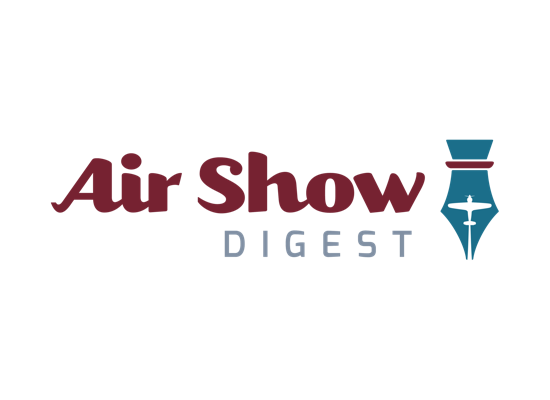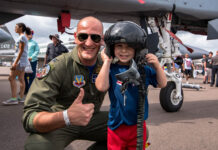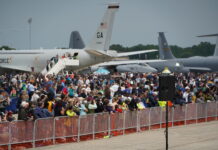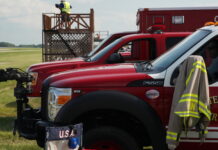There’s been a lot of talk in the industry about the trials and tribulations of new air show performers. About how hard it is to break into this industry. About how expensive it is for new performers. About the unique challenges that new pilots face as they work to get a toe-hold in this business.
But I’m not a new air show performer any more. It’s true that a lot of air show organizers still don’t know me or haven’t seen me fly. But I’m entering my sixth year in the business, flying about 13 shows a year, and I feel I’ve lived through the “new performer” period.
I now know a few people in this business, on both sides of the taxiway. Not everyone in our business has a voice and since I had the opportunity to write an article, I thought I’d share some of what I am hearing, and a little of what I have learned.
New air show pilots are very eager to know what the rest of the air show pilots know about getting hired to fly air shows. It is always helpful to hear from the veteran performers and the organizers who are in a position to hire. And I have read or heard some really good suggestions: Practice regularly to improve skill level and stay safe. Be congenial, on-time, and low maintenance in your interaction with event organizers. Spend the appropriate amount of money in advertising. Be eager to do whatever is necessary to improve the quality and success of the air show. Be entertaining. Have something new and unique to offer. Be willing to fly for a minimal amount of money. Start locally. Understand that experience may make the difference in getting hired. Do I need to go on?
There are many performers in this country that, for many reasons, started in this business and never made it flying air shows full-time. Many of them will see this long list of “must do” items and wonder why they didn’t succeed when they can honestly say that they abided by those suggestions and tips. Many of the individuals who are no longer flying in air shows are immensely talented pilots who could entertain better than most. Some may have been just mediocre pilots who weren’t willing to work that hard. And others were just not good at the marketing demands that come along with “making it” in the air show business. At some point, all of the reasons add up to running out of money and having to get a “real job” to pay the bills and support families.
Show Me the Money!
For better or worse, it’s all about money. The air show business needs new performers to enable and sustain its growth. And new performers need some paying shows to get started, pay the bills and keep going. Who is going to encourage and nurture them? If we all take some ownership in this business and make a concerted effort to make it better, it will grow and continue to thrive. That means that veteran performers need to take an active interest in bringing along new pilots and air show event organizers should conduct their businesses in a way that recognizes the importance of the future of our industry.
“A good deal is a good deal for everyone!” Well, it’s not much fun if the event organizers get a good deal and the pilots go broke. Just as it’s not such a good deal for up-and-comers if air show pilots who have sponsors fly air shows without charging a fee to the event organizer. It creates a very difficult situation for the pilots trying to charge a reasonable fee.
If air shows have the choice of hiring someone who is free and someone who wants, let’s say, $5,000 for the same work, most people will take “door number one” for the obvious reason. Hey, we all want to make money! Unfortunately, the more this happens, the more we “teach” our industry to look for the “free: performers first, and then pay for additional performers only if they have to. This may help the bottom line in the short-term, but it will ruin our industry in the long run. It’s already hard enough to get started in this business. An increased number of no-fee sponsored performers will make it even harder.
To Be (Different) or Not to Be
When a new pilot enters this industry, they almost always start at a higher altitude than the seasoned veterans. As these new pilots get experience, they develop their own style, get lower waivers, and slowly become a known entity. I often wonder how many air show promoters out there are secretly saying to themselves, “I wonder how long it will take him to be flying like <insert your favorite performer name here>?” The reality is that new pilots will never fly just like your favorite performer because only your favorite performer can fly like your favorite performer. New air show pilots will never be – and should never be! — just like any other pilot. They will be — and should be – themselves, flying their hearts out trying to be the best that they can be. It’s unrealistic to expect all pilots to be the same or ever become just like all the best pilots before them. And, as an industry, we should not want them to be; more than anything else, our business needs change, variety and innovation.
Most air show pilots want to stand out and be noticed. (Those of you who know me, no laughing; I’m trying to be serious here). We want to be innovative and have unique qualities in our flying. Some performers see uniqueness as having to stretch the envelope or stretch the safety margin and do things that are a little more “on the edge” than others. Thankfully, that type of thinking is in the minority and I don’t think anyone really wants uniqueness at the expense of safety. Let’s face it, most spectators don’t know a snap roll from an aileron roll. Air show organizers and promoters all want new and unique acts to hire year after year. So why are some of our pilots pushing the envelope too far? To get noticed. Get hired. Feed their ego. Make money. I know that to be an air show performer, I have to be hired to perform. We call all the other flying practice.
A Couple of Suggestions
We should be doing a better job as an industry at actively promoting and encouraging newcomers to our business. I was given a suggestion from a fairly new performer involving mentoring. Many air show pilots do a great job of mentoring. I have had one or more who I could turn to since I started my air show career. One way to use mentoring to improve our industry would be for the veteran pilots to work with the new pilots to use their experience and good standing to help new pilots get hired. Why couldn’t a veteran pilot say to a prospective air show organizer, “Yes, I’d love to fly your show for my regular fee and along with me I’d like you to hire Mr. John Smith who I have been working with for the last six months. His fee is $1000.” Or work with the local, smaller shows to encourage the promoter to hire the new guy who just got his Statement of Aerobatic Competency card, and is flying a very safe routine. This is good for both pilots, the air show, and the industry as a whole.
It should not be so difficult for an air show performer to get a return phone call from an air show event organizer. This is a matter of air show business practices. For some reason, it has become acceptable for event organizers to simply ignore phone calls and e-mail message from performers. It shouldn’t be. Even if you call a newbie to say “no,” he can at least get some feedback on the reasons you can’t use him. You can tell him he’s too expensive or not established enough or whatever. If the event organizer doesn’t answer inquiries, the pilot doesn’t get any input on how to improve his chances of getting hired in the future.
Has Sponsorship Become a Prerequisite for Innovation?
Being different costs money. Most of us have really great ideas about how to put on a really unique act, or how to entertain the crowds, but we’ll never have enough money to make it happen without a major sponsor. I know from the other side of the fence. It costs a lot of money to build the plane to “out-fly” the next guy. It costs a lot of money to buy and restore a warbird that no one else has. Where does the money come from to develop a formation act? Or, buying airplanes and the fuel for the countless hours of practice. Without a major sponsor and a cash infusion, many really great ideas never get off the drawing board. That doesn’t mean we don’t have them. I believe many of us have been very tenacious for years, but it does have a cost associated with it. Without a major cash sponsor, many of us will run out of money before we run out of great ideas and passion.
Securing a major sponsor seems to be the answer for performers from many perspectives. Big sponsorship dollars should allow the pilot to practice often, stay sharp, skilled and safe. Without the pressure of money, pilots can be creative in adding elements to make their show unique…modifying an airplane so it can perform in night shows, or funding that formation team, or whatever. What it should not do is create a barrier that separates the haves from the have-nots, simply because they can afford to pay an air show to hire them. Unfortunately, this sometimes locks-out otherwise qualified performers at many air shows. Sponsorships should not be a tool that divides this industry. By all standards, it should enhance our industry.
Maybe those performers who have great marketing skills and have secured those lucrative sponsorships would be willing to help others performers learn more about this part of our business. Our industry has no shortage of skilled aviators. What seems to be in short supply are individuals who can sell themselves and our industry to Corporate America. Those fortunate few who have combined outstanding airmanship with outstanding marketing and sales skills may well hold the key to the future of our industry. Two things are increasingly clear: sponsorship is an important part of the air show industry’s future and there are individuals in our organization who are very talented at securing air show sponsorships. They would be doing an important service to our business if they were to pass along their skills, experiences and expertise to the newcomers in our industry.
Finally, I want to encourage everybody reading this to do something different and beneficial for the air show business: Hire a new performer. Pay them something, anything. Toss some encouragement their way. When everyone benefits, everyone benefit. That’s good for the whole air show industry. And that is a “good deal for everyone.”








